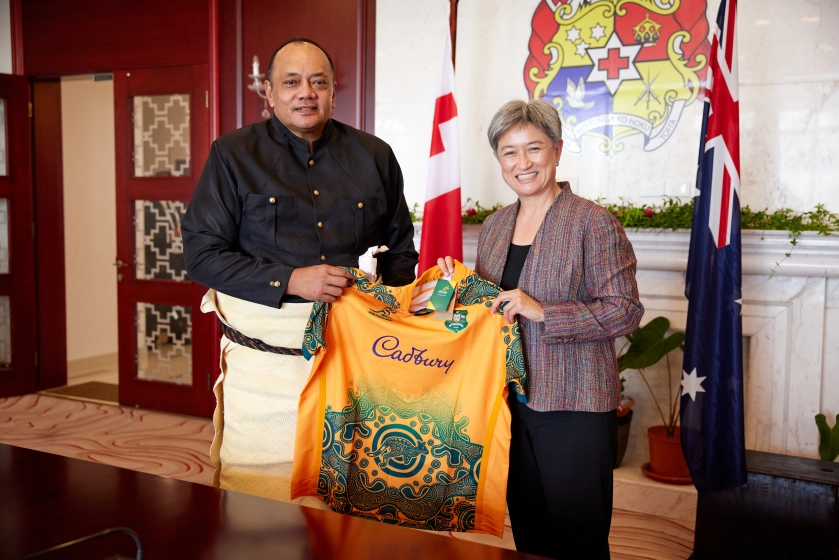Currently, Taiwan only has three official allies in the Pacific (i.e., Tuvalu, Palau, and the Marshall Islands), with China maintaining relations with the vast majority of countries in the region. However, Taiwan still has some presence at the Pacific regional level at the Pacific Islands Forum (PIF). PIF was established in 1971 as one of the major organizations through which Pacific leaders make consultative decisions on regional issues. It includes 18 members from the Pacific region and is extremely influential in regional affairs. Taiwan is a “development partner” for PIF and participates under the name “Taiwan/Republic of China.” Typically, this means that Taiwan can send representatives to major PIF meetings where they interact mainly with Taiwan’s Pacific allies.
From 26 to 30 August 2024, PIF hosted its 53rd Leaders Meeting in the Kingdom of Tonga in the southern Pacific. The annual Leaders Meeting is the premiere event for Pacific regionalism and concludes with the release of a final communique that defines Pacific regional goals for the next year. Unfortunately, the Leaders Meeting has also often been marked by open conflict between China, Taiwan, and the Pacific host country for the meeting. (China is a “dialogue partner” for PIF, or a country that “strategically engage[s] with the Pacific Islands Forum,” which gives it a higher status than Taiwan in relation to Forum members.) For example, when the Pacific nation of Nauru still maintained diplomatic ties with Taiwan, Nauru’s president butted heads with the Chinese delegation during the 2018 PIF Leaders Meeting held in Nauru when the Chinese delegation tried to speak before the prime minister of Tuvalu, another Pacific nation with ties to Taiwan.
This year, Taiwan, represented by Deputy Minister of Foreign Affairs Tien Chung-kwang, was embroiled in several controversies during the PIF Leaders Meeting (seemingly none of its own making) as Pacific nations allied with China and Taiwan clashed and China seemingly influenced text in the final communique released by PIF Leaders. This indicates that Taiwan faces a rocky road in maintaining its place in Pacific regional networks, given its diminished number of allies in the region.
On 28/29 August, it was first reported that Solomon Islands, which broke ties with Taiwan in 2019 to form relations with China, was pushing to strip Taiwan of its “development partner” status as part of PIF. The President of Palau, Surangel S. Whipps Jr.—a strong supporter of Taiwan, rejected Solomon Islands’ suggestion, telling ABC News (Australia) that “I’d hate that to be a divisive issue that causes PIF to split …”
Toward the end of the Leaders Meeting, a related and more significant controversy arose when the final PIF communique was posted online at record speed. Section 66 of the posted communique included the following reference: “Leaders reaffirmed the 1992 Leaders decision on relations with Taiwan/Republic of China,” indicating that PIF Leaders had been able to agree that Taiwan would remain a PIF “development partner” despite objections from China. Subsequently, it was reported that China’s Special Envoy for Pacific Island Countries Affairs, Qian Bo, was deeply upset about the language in the communique and demanded that a correction be made. The version of the PIF communique with reference to Taiwan was then taken down from the PIF website and later reposted. In the second version of the communique, all references to Taiwan had been removed.
Although it is likely that the first version of the communique that was published, which included a reference to Taiwan, was posted online in error and was never meant to be the final text of the communique, the fact that changes were made to the communique after or simultaneous with the Chinese Special Envoy’s agitated reaction has fuelled suspicion that the change was made to placate China. This has sparked criticism of both China for interfering in Pacific regional affairs and Pacific leaders for potentially bending to China’s will despite verbally denouncing “big power” influence in the region.
Regardless of whether the wrong version of the PIF communique was initially posted and then swapped out for the correct version or whether China demanded a change and PIF Leaders acquiesced, the communique controversy does not bode well for Taiwan’s position in the Pacific. The fact that there was a version of the communique floating around the Leaders Meeting that reaffirmed Taiwan’s role as a “development partner” means that that language was probably part of the communique at some stage and that enough leaders agreed to remove it (whether of their own volition or at the behest of China), that it was not deemed a necessary part of the final communique. No move has been made yet to dismantle Taiwan’s position within PIF, but the meeting in Tonga demonstrates that this issue is front of mind for some countries in the Forum. This, combined with Solomon Islands’ refusal to comment on whether it would invite Taiwan to the 2025 PIF meeting, which Solomon Islands is hosting, suggests that certain Pacific countries are actively moving to end Taiwan’s regional presence despite efforts by Taiwan’s allies to avoid this outcome.
At present, Taiwan has made strong strides in its unofficial diplomacy to the point where it can count on support from nations like the US and Australia despite their official relationships with China. A loss of allies or regional presence in the Pacific certainly does not undermine these diplomatic achievements. However, for the Pacific (and other regions), it is important to note that the loss of official allies not only impacts bilateral relations but also has knock-on effects on regional presence and multilateral ties. Although Solomon Islands is set to host the PIF Leaders Meeting in 2025 and may sideline Taiwan from the event, Taiwan’s ally Palau will host in 2026, which seemingly guarantees Taiwan another chance to participate in the event while also signalling that regional controversy over the status of Taiwan will continue into the near future.
Dr Jess Marinaccio is an Assistant Professor of Asian Pacific Studies at California State University, Dominguez Hills. She was recently employed in Tuvalu’s Foreign Affairs Department as well as its Embassy in Taiwan. Dr Marinaccio researches Pacific understandings of diplomacy and Taiwan’s Pacific fisheries and has published in journals including The Contemporary Pacific, International Journal of Taiwan Studies, and The Journal of Pacific History. The opinions expressed here are her own.




